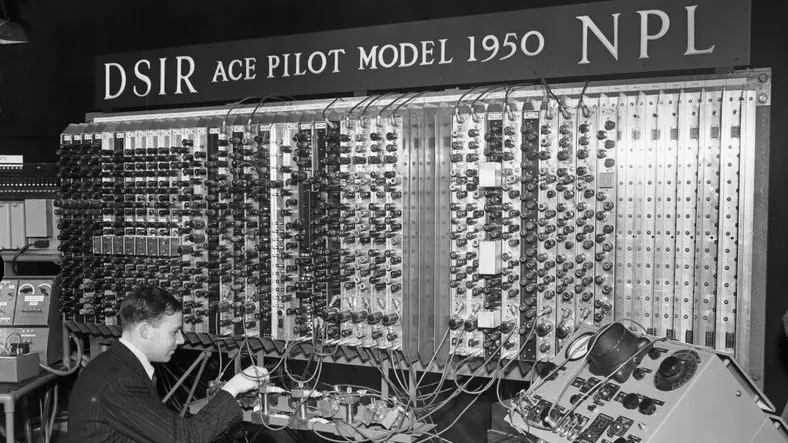Artificial Intelligence: The Benefits of Specialization
- Liax Tecnologia Tecnologia
- Feb 27
- 3 min read
Artificial Intelligence began to be developed in the 1950s when researchers like Alan Turing started exploring the possibility of machines thinking. Initially, AI systems were extremely limited and based on manually programmed rules.

With the advancement of machine learning and neural networks, specialized systems - models emerged trained to solve specific problems, such as image recognition, automatic translation, and medical diagnosis. This form of AI is known as ANI.
Over the years, the idea of a more comprehensive artificial intelligence, capable of learning and applying knowledge across multiple domains without being limited to a single task, gained traction. This concept became known as General AI or AGI, a type of AI that could reason, learn, and adapt to new situations similarly to humans.
Types of Artificial Intelligence in Everyday Life
Today, three types of AI guide the evolution of new technologies:
Narrow AI (ANI), or Specialized AI;
General AI (AGI), or General AI;
Artificial Superintelligence (ASI), or Superintelligent AI.
ANI excels at performing specific tasks in any field, though it has limitations in flexibility and cannot transfer knowledge beyond the areas for which it was programmed. Some real-world applications include chatbots, speech recognition, and virtual assistants.
AGI, on the other hand, aims to mirror human cognition, adapting to different problems. This technology has not yet been developed, but it remains a key objective in AI research.
ASI represents a futuristic vision of technology, with the potential to surpass human intelligence. However, it raises both inspiration and concerns regarding control and safety.
As ANI reaches its peak, the potential emergence of AGI and ASI opens new horizons and challenges. Researchers see these advancements as transformative opportunities, but they also present risks that require careful attention.
AGI Does Not Expand Its Capabilities Like ANI
One of the main misconceptions about General AI is that, once developed, it could improve itself indefinitely, evolving into superintelligence. However, unlike specialized systems, AGI does not automatically enhance its capabilities.
Specialized AIs (ANI), on the other hand, have already demonstrated continuous progress since they are constantly trained and refined to improve their specific functions. For example, an AI model for medical diagnosis can be updated with new data to detect diseases more accurately. But for AGI to be truly effective, it would need to integrate knowledge from different domains and adapt to various contexts without human intervention—something that has yet to be achieved.
AI researcher Harper Carroll A. has contributed to multiple discussions on artificial intelligence and automation, recently opening a debate on ANI and AGI. According to her, today’s AI systems are not truly intelligent but rather collections of patterns refined through repetition. "We need to focus on existing technologies, like Specialized AIs, because they can aid in disease discovery, assist medical treatments, and personalize education for children. [...] The true magic of AI is not replacing humans; it’s enhancing our capabilities," Carroll concluded.

Applications of Specialized AI in Daily Life
As we know, Artificial Intelligence has impacted various sectors of society, and Specialized AI is a clear example of this progress, demonstrating its efficiency in specific tasks.
Chatbots and Virtual Assistants: Tools like ChatGPT and Gemini answer questions and assist customers on websites and apps.
Personalized Recommendations: Platforms like Netflix and Spotify suggest content based on user history.
Route Optimization: Apps like Google Maps and Waze use AI to suggest faster routes based on traffic conditions.
Personalized Learning for Children: AI-powered platforms adapt teaching to a child's learning pace, personalizing content and exercises.
Medical Diagnosis: AI models detect diseases early by analyzing medical imaging and biomedical data.
Drug Discovery: Algorithms accelerate pharmaceutical research by analyzing chemical compounds on a large scale.
Predictive Maintenance: Smart sensors monitor machines and prevent failures before they occur.
Quality Control: Algorithms analyze products in real time to detect manufacturing defects.
Although AGI remains a theoretical concept, Specialized AIs have already proven their value by driving innovations in fields such as healthcare, finance, security, and transportation. Their continuous improvement makes them indispensable in daily life, and their impact will only continue to grow.
As technology advances, the focus should not only be on developing more intelligent systems but also on how these tools can expand human capabilities and improve quality of life.

Commentaires